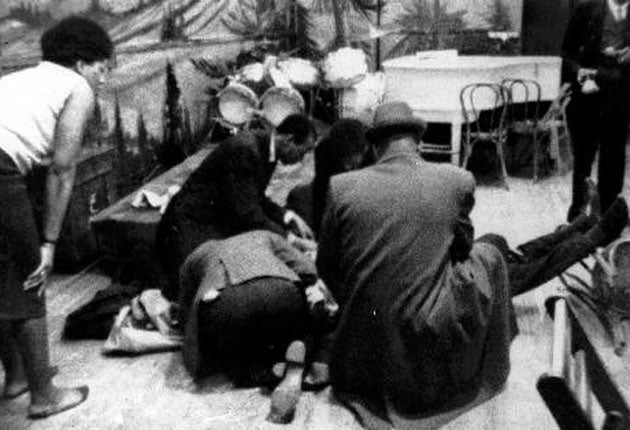Yuri Kochiyama dead: Japanese American human rights activist and close Malcolm X ally dies aged 93
The Nobel Peace Prize-nominated civil rights campaigner also fought for political prisoners, Puerto Rican independence and nuclear disarmament

Yuri Kochiyama, a lifelong champion of civil rights causes in the United States, has died.
The Japanese-American activist, who was with Malcolm X during his final moments, passed away peacefully in her sleep at the age of 93, her family have confirmed.
Kochiyama, who was born Mary Yuriko Nakahara in 1921, grew up in the small town of San Pedro in California. Her family were forced to relocate to an internment camp with thousands of other Japanese Americans following the attack on Pearl Harbor in 1941.
It was at the Jerome Relocation Center in Arkansas where she first met her late husband Bill Kochiyama, who served as a soldier in the Japanese-American 442nd Regimental Combat Team.
They married after the Second World War had ended and moved to New York City to start a family together. It was living side-by-side with poor African-American and Puerto Rican families in the neighbourhood that initially inspired her career in activism.
In 1963, she became friends with radical Nation of Islam activist Malcolm X, who inspired her work on black nationalism. She was famously with Malcolm X at the very end of his life. He was shot by assassins during a speech in New York City on 21 February 1965. Kochiyama rushed towards X’s wounded body and held his head in her lap – a moment famously immortalised in black-and-white photograph (seen in the image above, left).
In the 1970s, she staged several demonstrations – including the takeover of the Statue of Liberty, to highlight the plight of Puerto Rican independence. She was part of a group who successfully demanded the release of five Puerto Rican nationalists who had been held for over 20 years.
She was also a prominent figure in the Asian American movement that gathered pace after the Vietnam War protests, and mentored scores of young activists in the art of protest.
In the 1980s, together with her husband, she pushed for a formal government apology to the Japanese-American internees and reparations through the Civil Liberties Act. In 1988, President Ronald Reagan signed it into law and $20,000 was awarded to each Japanese American internment survivor.
She also dedicated time to fighting for the rights of political prisoners and campaigning against nuclear disarmament.
Kochiyama was nominated for the Nobel Peace Prize during the “1,000 Women for the Nobel Peace Prize 2005”.
Subscribe to Independent Premium to bookmark this article
Want to bookmark your favourite articles and stories to read or reference later? Start your Independent Premium subscription today.

Join our commenting forum
Join thought-provoking conversations, follow other Independent readers and see their replies